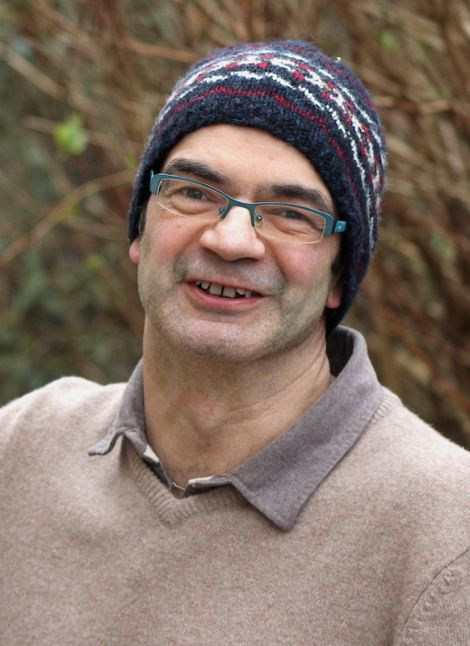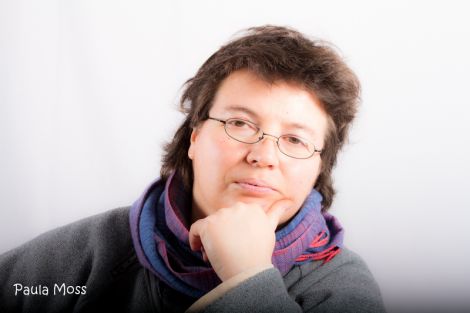Scottish Independence Debate / Independence: the foreign perspective
IT’S CONCEIVABLE the result of September’s independence referendum will be influenced by the small but significant number of foreign nationals currently living in Scotland who will all be allowed to vote.
We have heard little from this group on the subject of Scottish independence, so Genevieve White spoke to three folk from overseas in Shetland to find out their perspective on Scotland’s future.
“I don’t see the point”
Pablo Trueba–Boluda moved to Shetland from his native Valladolid in Spain last July and is working on a two year project at Scalloway’s NAFC Marine Centre, having previously studied in Glasgow and Newcastle.
He says he feels “comfortable” in Shetland, and even finds the climate bearable having spent months working offshore in Iceland in the past.
Yet despite the fact that he is entitled to vote in the referendum, he says “it doesn’t make any sense” for him to do so.
“I’m not going to vote because I’m Spanish. This is about the identity of the country – if I was going to be here for many years I would say something, but to be here for two years and vote – there’s no point.”
He does, however, have his own opinions on Scottish independence, questioning the need for Scotland to go it alone when it already has its own international identity.
“I have spoken with a lot of people from different countries. People see and talk about Scotland as a different country. Scotland’s culture and traditions are well known all over the world.”
Trueba–Boluda also has reservations about the effect independence might have on Scotland’s economy.
“The pound is one of the most economically strong currencies in the world and this makes Scotland part of a strong team.
“I don’t think independence will get you anything from a political or an economic point of view. In this case, you must ask if you are going to get anything else from independence. In my opinion, I don’t think you are so I don’t see what the point is.”
Become a member of Shetland News
“Keep your promises”
Social care worker George Gagic has lived in Shetland since 1991 after the brutality and violence of civil war forced him to flee his homeland in former Yugoslavia.
He is broadly in favour of Scottish independence, but stresses the need for openness and “positive politics” in which people are allowed to decide for themselves without being pushed one way or the other.
He senses that some people feel threatened by big business. “We can see how important it is when BP or British Airways announce whether they are for or against independence. So I am very much of the opinion that people should not have to take into account these kind of threats.”
Gagic strongly believes that the people of Shetland are not benefitting from oil wealth. He sees an urgent need for improvement in health care, social care and public transport services in Shetland.
On whether Scottish independence could address these issues, his message to the leaders of the Yes campaign is heartfelt: “Give me promises, but promises that you will keep after the referendum.
“We need quality politicians who will keep their promises, stick to them and respect the people.”
“London feels so far away”
Poet Nat Hall came to Shetland from Normandy when “a beautiful accident” resulted in a planned trip to South Africa falling through.
“I just followed the longitude but went north instead,” she explained, recalling waking up the morning after pitching her tent in Levenwick, unzipping the tent door and feeling she had found “treasure island”.
Hall has lived and worked in various parts of the UK and first visited Scotland in 1995 from Oxfordshire.
She lived in England for 11 years, but her increasingly frequent trips to Scotland were a way to “escape the rat race” and she has now lived in Shetland for 13 years.
Hall thinks that independence would be “a positive thing” stating that Scottish people need to be able to assert themselves and have a say in the future of their country.
“Why do we have to have decisions taken by Westminster when London feels so far away?”
Nat perceives a striking difference between life in Scotland and in England. “I have always felt more at home north of the border –I have had a sense of being welcomed.”
She sees Scottish people as being more open towards incomers, believing that “the further north you go there is a true sense of gentleness”.
One thing is clear, Scottish independence could make a radical difference to the way Hall perceives her own national identity.
“I’ve always been a little reluctant to have a British passport, but if I get the opportunity to have a Scottish passport, I’ll take it!”
Become a member of Shetland News
Shetland News is asking its readers to consider paying for membership to get additional perks:
- Removal of third-party ads;
- Bookmark posts to read later;
- Exclusive curated weekly newsletter;
- Hide membership messages;
- Comments open for discussion.
If you appreciate what we do and feel strongly about impartial local journalism, then please become a member of Shetland News by either making a single payment, or setting up a monthly, quarterly or yearly subscription.






























































